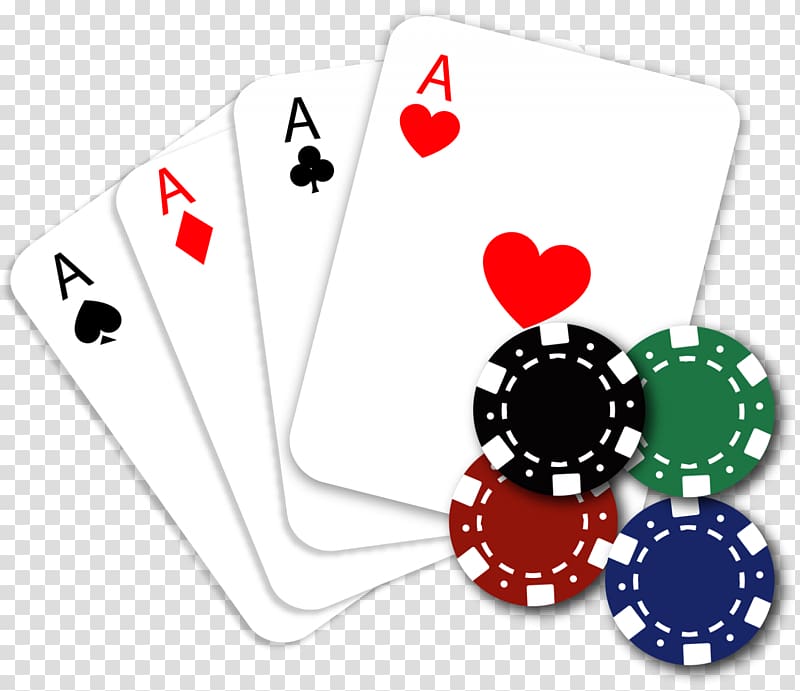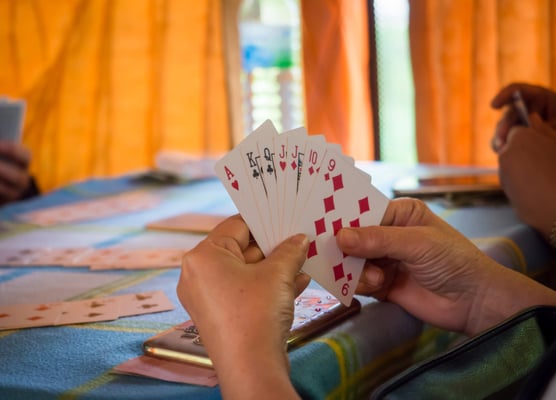
American casinos, cruise ships, horsetracks and dogtracks - the complete gambling landscape of United States. Includes United States casino details, gambling news and tweets in United States, area maps, American entertainment, coupons offers. Roll two dice at the craps table or three dice at Sic Bo. Play Pai Gow Poker, Tri Card Poker, or Texas Hold'em Bonus Poker. You can even play Vegas Three Card Rummy, and if you don't know how to play rummy, we will gladly teach you. You can play Bingo and Keno too. You Can Win a Progressive Jackpot. Americans love to dream big.
| Alternative names | Strip Jack naked, Beat your neighbour out of doors, Beat Jack out of doors |
|---|---|
| Type | Adding-up-type |
| Players | 2+ [1] |
| Skills required | Counting |
| Cards | 52 |
| Deck | French |
| Play | Clockwise |
| Playing time | usually <15 minutes per hand |
| Random chance | Complete |
| Related games | |
| War, Egyptian Ratscrew |
Beggar-my-neighbour, also known as Strip Jack naked, Beat your neighbour out of doors,[1] or Beat Jack out of doors,[2] is a simple card game. It is somewhat similar in nature to the children's card game War, and has spawned a more complicated variant, Egyptian Ratscrew.
Origins[edit]
The game was probably invented in Britain and has been known there since at least the 1840s.[3]
It may be the same as Beat the Knave out of Doors or Knave out o' Doors, in which case it is much older as this game is mentioned as early as 1755.[4]
It appears in Charles Dickens's 1861 novel Great Expectations,[5] as the only card game Pip, the book's protagonist, seems to know how to play as a child.
Gameplay[edit]
A standard 52-card deck is divided equally between two players, and the two stacks of cards are placed on the table face down. The first player lays down their top card face up to start a central pile, and the opponent plays their top card, also face up, on it, and this goes on alternately as long as no Ace or court card (King, Queen, or Jack) appears. Rizk casino withdrawal rules. These cards are called 'penalty cards'.
If either player turns up such a card, their opponent has to pay a penalty: four cards for an Ace, three for a King, two for a Queen, or one for a Jack. They do this playing the required number of cards to the central pile. When they have done so, if all the cards are numerals, the player of the penalty card wins the hand, takes all the cards in the pile and places them under their pack. The game continues in the same fashion, the winner having the advantage of placing the first card. However, if the second player turns up another Ace or court card in the course of paying to the original penalty card, their payment ceases and the first player must pay to this new card. This changing of penalisation can continue indefinitely. When a single player has all of the cards in the deck in their stack, they have won.

For more than two players, play proceeds clockwise. If a player reveals a new penalty card while paying their penalty, the next player around pays the tax.[1]
Relation to mathematics[edit]
Is there a non-terminating game of beggar-my-neighbour?
A longstanding question in combinatorial game theory asks whether there is a game of beggar-my-neighbour that goes on forever. This can happen only if the game is eventually periodic—that is, if it eventually reaches some state it has been in before. Some smaller decks of cards have infinite games, while others do not. John Conway once listed this among his anti-Hilbert problems,[6]open questions whose pursuit should emphatically not drive the future of mathematical research.The search for a non-terminating game has resulted in 'longest known games' of increasing length.[7]
See also[edit]
Notes[edit]
- ^ abcBeggar my neighbour, The Guardian, 22 Nov 2008
- ^'HIPS Finder Ltd'. Retrieved 2020-09-20.
- ^''his shop-boy, seated across an empty sugar-tub, was playing a game of 'Beggar-my-neighbor' The Disgrace to the Family Chapter IV'. Retrieved 2016-09-09.
- ^Smith 1755, p. 15. sfn error: no target: CITEREFSmith1755 (help)
- ^''I played the game to an end with Estella, and she beggared me.' Great Expectations Chapter 8'. 19thnovels.com. Archived from the original on 2009-09-25. Retrieved 2009-10-29.
- ^Guy, Richard K.; Nowakowski, Richard J. (25 November 2002). 'Unsolved Problems in Combinatorial Games'(PDF). More Games of No Chance. MSRI Publications. 42. Cambridge University Press. ISBN0521808324. Retrieved 2018-12-03.
This problem reappears periodically. It was one of Conway's ‘anti-Hilbert problems' about 40 years ago, but must have suggested itself to players of the game over the several centuries of its existence.
- ^Richard P Mann. 'Known Historical Beggar-My-Neigbour Records'. Retrieved 2018-12-03. As of 3 December 2018, none of these games continues indefinitely, the longest found being 1122 tricks / 7960 cards (William Rucklidge, 2014-03-05).
References[edit]
| Wikisource has the text of the 1911 Encyclopædia Britannica article Beggar-my-neighbour. |
- Marc Paulhus (1999). 'Beggar My Neighbour'. The American Mathematical Monthly. Mathematical Association of America. 106 (2): 162–165. doi:10.2307/2589054. JSTOR2589054..
- Morehead, Albert H.; Frey, Richard L.; Mott-Smith, Geoffrey (1991). The New Complete Hoyle Revised: The Authoritative Guide to the Official Rules of all Popular Games of Skill and Chance. London, New York, Sydney, Auckland, Toronto: Doubleday. p. 456. ISBN0-385-40270-8.
Frequently Asked Questions
Q: Why won't you add rule-variations/replayable-games/any-other-feature? It would make the game much better.
A: We get a lot of requests from people that just want one tiny little feature added to a game. What they don't realize is that if we start implementing all the suggestions we get then the games will no longer be simple. The number one praise we get is that the interface is simple and uncluttered and it's easy to play. That's very much deliberate. There is no login, no loading screens, as few options as possible. We want to keep it as simple as possible, and that means each game only has one set of rules, you can't choose variations, we try to add as few controls as possible to the screen etc. So, don't feel bad if you make a suggestion and I deny it, we deny 99% of all suggestions.
Q: Why can't I see my statistics on another computer?
How To Play Strip Gin Rummy
A: This goes back to simplicity again. We don't want people to have to login to the site. We don't want to keep passwords in a database and be responsible for them. Your statistics are stored in your browser, we don't store them anywhere. That means that as soon as you switch browsers you won't see the same statistics.
Q: Does this site use cookies and/or track people?
A: Yes, this site uses cookies. They are used for game purposes, like remembering your scores between rounds, but also to gather aggregate data on people's browsers, screen resolutions and more, which helps us figure out what we need to support. Finally they are also used for advertising purposes. A more detailed description of our cookie use can be found in our Privacy Policy, and you can always reach out and contact us if you're concerned about it.
:max_bytes(150000):strip_icc()/senior-couple-playing-cards--enjoying-picnic-in-park-915089986-5a9600806edd65003641e27b.jpg)
Q: Do the computer players cheat? Are the games fixed?
A: No. In all the games the cards are dealt randomly at the start, and the computer players make their decisions based only on knowledge of their own hands, and knowledge of what has been played. Basically they use the same information as a human player would have available to them.

Q: I saw an offensive ad. Can you remove it?
Strip Rummy How To Play

American casinos, cruise ships, horsetracks and dogtracks - the complete gambling landscape of United States. Includes United States casino details, gambling news and tweets in United States, area maps, American entertainment, coupons offers. Roll two dice at the craps table or three dice at Sic Bo. Play Pai Gow Poker, Tri Card Poker, or Texas Hold'em Bonus Poker. You can even play Vegas Three Card Rummy, and if you don't know how to play rummy, we will gladly teach you. You can play Bingo and Keno too. You Can Win a Progressive Jackpot. Americans love to dream big.
| Alternative names | Strip Jack naked, Beat your neighbour out of doors, Beat Jack out of doors |
|---|---|
| Type | Adding-up-type |
| Players | 2+ [1] |
| Skills required | Counting |
| Cards | 52 |
| Deck | French |
| Play | Clockwise |
| Playing time | usually <15 minutes per hand |
| Random chance | Complete |
| Related games | |
| War, Egyptian Ratscrew |
Beggar-my-neighbour, also known as Strip Jack naked, Beat your neighbour out of doors,[1] or Beat Jack out of doors,[2] is a simple card game. It is somewhat similar in nature to the children's card game War, and has spawned a more complicated variant, Egyptian Ratscrew.
Origins[edit]
The game was probably invented in Britain and has been known there since at least the 1840s.[3]
It may be the same as Beat the Knave out of Doors or Knave out o' Doors, in which case it is much older as this game is mentioned as early as 1755.[4]
It appears in Charles Dickens's 1861 novel Great Expectations,[5] as the only card game Pip, the book's protagonist, seems to know how to play as a child.
Gameplay[edit]
A standard 52-card deck is divided equally between two players, and the two stacks of cards are placed on the table face down. The first player lays down their top card face up to start a central pile, and the opponent plays their top card, also face up, on it, and this goes on alternately as long as no Ace or court card (King, Queen, or Jack) appears. Rizk casino withdrawal rules. These cards are called 'penalty cards'.
If either player turns up such a card, their opponent has to pay a penalty: four cards for an Ace, three for a King, two for a Queen, or one for a Jack. They do this playing the required number of cards to the central pile. When they have done so, if all the cards are numerals, the player of the penalty card wins the hand, takes all the cards in the pile and places them under their pack. The game continues in the same fashion, the winner having the advantage of placing the first card. However, if the second player turns up another Ace or court card in the course of paying to the original penalty card, their payment ceases and the first player must pay to this new card. This changing of penalisation can continue indefinitely. When a single player has all of the cards in the deck in their stack, they have won.
For more than two players, play proceeds clockwise. If a player reveals a new penalty card while paying their penalty, the next player around pays the tax.[1]
Relation to mathematics[edit]
Is there a non-terminating game of beggar-my-neighbour?
A longstanding question in combinatorial game theory asks whether there is a game of beggar-my-neighbour that goes on forever. This can happen only if the game is eventually periodic—that is, if it eventually reaches some state it has been in before. Some smaller decks of cards have infinite games, while others do not. John Conway once listed this among his anti-Hilbert problems,[6]open questions whose pursuit should emphatically not drive the future of mathematical research.The search for a non-terminating game has resulted in 'longest known games' of increasing length.[7]
See also[edit]
Notes[edit]
- ^ abcBeggar my neighbour, The Guardian, 22 Nov 2008
- ^'HIPS Finder Ltd'. Retrieved 2020-09-20.
- ^''his shop-boy, seated across an empty sugar-tub, was playing a game of 'Beggar-my-neighbor' The Disgrace to the Family Chapter IV'. Retrieved 2016-09-09.
- ^Smith 1755, p. 15. sfn error: no target: CITEREFSmith1755 (help)
- ^''I played the game to an end with Estella, and she beggared me.' Great Expectations Chapter 8'. 19thnovels.com. Archived from the original on 2009-09-25. Retrieved 2009-10-29.
- ^Guy, Richard K.; Nowakowski, Richard J. (25 November 2002). 'Unsolved Problems in Combinatorial Games'(PDF). More Games of No Chance. MSRI Publications. 42. Cambridge University Press. ISBN0521808324. Retrieved 2018-12-03.
This problem reappears periodically. It was one of Conway's ‘anti-Hilbert problems' about 40 years ago, but must have suggested itself to players of the game over the several centuries of its existence.
- ^Richard P Mann. 'Known Historical Beggar-My-Neigbour Records'. Retrieved 2018-12-03. As of 3 December 2018, none of these games continues indefinitely, the longest found being 1122 tricks / 7960 cards (William Rucklidge, 2014-03-05).
References[edit]
| Wikisource has the text of the 1911 Encyclopædia Britannica article Beggar-my-neighbour. |
- Marc Paulhus (1999). 'Beggar My Neighbour'. The American Mathematical Monthly. Mathematical Association of America. 106 (2): 162–165. doi:10.2307/2589054. JSTOR2589054..
- Morehead, Albert H.; Frey, Richard L.; Mott-Smith, Geoffrey (1991). The New Complete Hoyle Revised: The Authoritative Guide to the Official Rules of all Popular Games of Skill and Chance. London, New York, Sydney, Auckland, Toronto: Doubleday. p. 456. ISBN0-385-40270-8.
Frequently Asked Questions
Q: Why won't you add rule-variations/replayable-games/any-other-feature? It would make the game much better.
A: We get a lot of requests from people that just want one tiny little feature added to a game. What they don't realize is that if we start implementing all the suggestions we get then the games will no longer be simple. The number one praise we get is that the interface is simple and uncluttered and it's easy to play. That's very much deliberate. There is no login, no loading screens, as few options as possible. We want to keep it as simple as possible, and that means each game only has one set of rules, you can't choose variations, we try to add as few controls as possible to the screen etc. So, don't feel bad if you make a suggestion and I deny it, we deny 99% of all suggestions.
Q: Why can't I see my statistics on another computer?
How To Play Strip Gin Rummy
A: This goes back to simplicity again. We don't want people to have to login to the site. We don't want to keep passwords in a database and be responsible for them. Your statistics are stored in your browser, we don't store them anywhere. That means that as soon as you switch browsers you won't see the same statistics.
Q: Does this site use cookies and/or track people?
A: Yes, this site uses cookies. They are used for game purposes, like remembering your scores between rounds, but also to gather aggregate data on people's browsers, screen resolutions and more, which helps us figure out what we need to support. Finally they are also used for advertising purposes. A more detailed description of our cookie use can be found in our Privacy Policy, and you can always reach out and contact us if you're concerned about it.
Q: Do the computer players cheat? Are the games fixed?
A: No. In all the games the cards are dealt randomly at the start, and the computer players make their decisions based only on knowledge of their own hands, and knowledge of what has been played. Basically they use the same information as a human player would have available to them.
Q: I saw an offensive ad. Can you remove it?
Strip Rummy How To Play
A: If you see an ad that is offensive to you then please contact us and we'll try our best to block it. Due to the way advertising works we can't always immediately find the ads to block them, but if you send a screenshot of it, or you remember any text on it or a url then there's a much higher chance that we can find it and block it.

